The uncomfortable side of tradition
Updated: 2014-07-05 10:59
By Raymond Zhou (chinadaily.com.cn)
|
||||||||
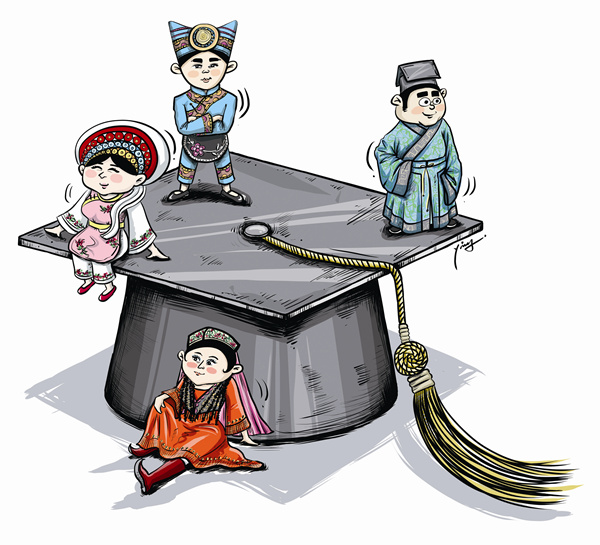 |
|
[Photo by Wang Xiaoying/China Daily] |
 |
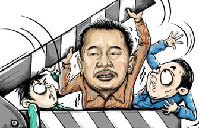 |
A recent graduation ceremony made news not because of who made the speeches or what was said, but because of what everyone present wore.
The event at Jiangsu Normal University drew the nation's attention when photos surfaced online of the graduates, their teachers and even invited guests, including officials from the Ministry of Education, donning the traditional garb known as the Hanfu.
My first impression was that the Hanfu, which literally means Han clothing, bears a vague resemblance to the traditional Western graduation outfit, with its black gown and square academic bonnet.
I'm sure most Westerners would have viewed it as a Chinese variation of Western style.
But the Hanfu dates back a couple of thousand years. The "Han" in Hanfu refers to the Han people, the largest ethnic group in China, which accounts for around 92 percent of the country's population, and some 19 percent of the entire global population.
What the Han people wear today is not very different from clothing styles in most other parts of the world.
We tend to put on a Western-style suit on formal occasions.
A grassroots movement to revive the Hanfu, active in certain quarters, is an effort to assert Han people's ethnic identity.
So why can't we dress like our ancestors for weddings and funerals, and graduation ceremonies for that matter.
The envy is more poignant when you look at China's other ethnic groups and their colorful clothing, constantly on display in television galas.
I'm a Han but I've never worn Hanfu. I don't even have any, nor do any of my family members.
But I can totally understand the pride and the urgency of some of my fellow Han people who have jumped onto the Hanfu revival bandwagon.
Although the Hanfu is generally not as elaborate as most of the formal wear of our other ethnic groups, it is part of our legacy and it is an honorable thing to preserve it, especially in this age of globalization, when people in every corner of the world move in the same sartorial direction.
But as with any movement, any change to conformity, no matter how well-intentioned, inevitablely throws up different opinions.
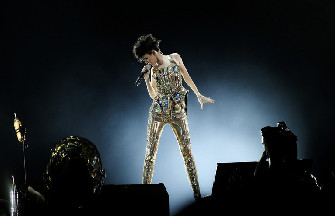
 Star Stefanie Sun holds concert in Beijing
Star Stefanie Sun holds concert in Beijing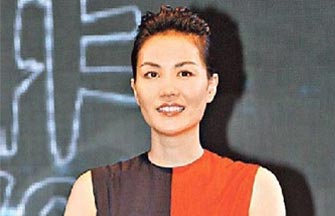
 Faye Wong's manager refutes star's drug rumors
Faye Wong's manager refutes star's drug rumors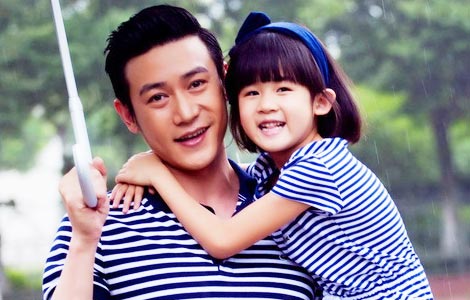
 Lu Yi and daughter Bei Er pose for street snaps
Lu Yi and daughter Bei Er pose for street snaps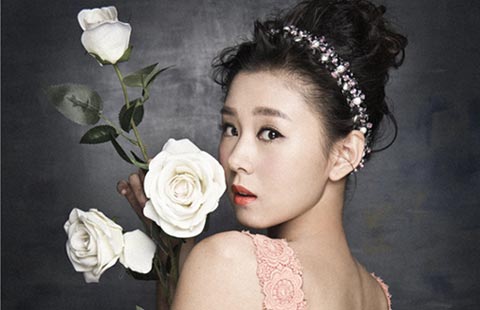
 Photoshoots of actress Li Xiaomeng
Photoshoots of actress Li Xiaomeng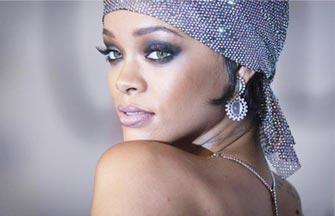
 Council of Fashion Designers of America Awards
Council of Fashion Designers of America Awards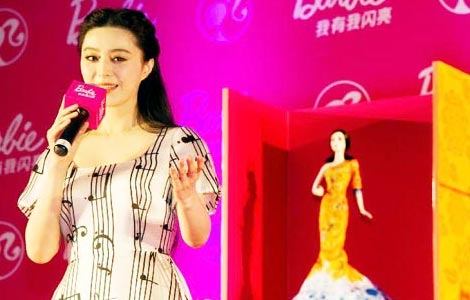
 Fan Bingbing, first Chinese actress in Barbie Hall of Fame
Fan Bingbing, first Chinese actress in Barbie Hall of Fame
 Awarding ceremony of 2014 hito Pop Music held in Taipei
Awarding ceremony of 2014 hito Pop Music held in Taipei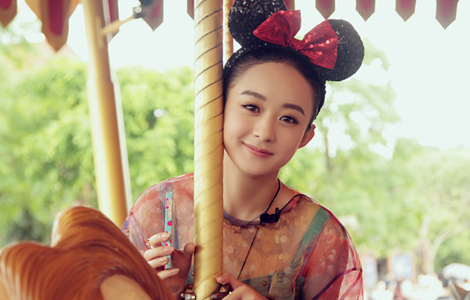
 Zhao Liying's photo shoot for Children's Day
Zhao Liying's photo shoot for Children's Day
Most Viewed
Editor's Picks

|

|

|

|

|

|
Today's Top News
Ex-security chief Zhou Yongkang under probe
Prudence urged over solar dispute
US visa delays likely to continue
McDonald's fishing for supplier
OSI group to fund food safety
China's FDI in US set for increase
Glitch delays visas for US-bound students
A musical spoof of the Clinton years
US Weekly

|

|





